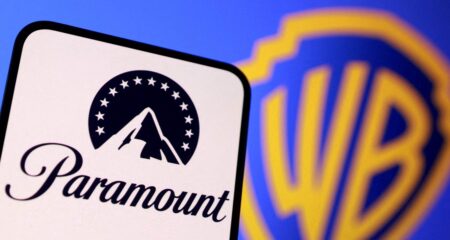
[By Candice Jones]
Google’s live streaming of the wedding of Prince William and Kate Middleton marks the beginning of the end for traditional broadcast models.
The search engine giant streamed Friday’s wedding live to millions of viewers across the world. It’s estimated that as many as 400m people logged onto YouTube to see it.
What Google proved was that hundreds of millions of people could log onto the service at the same time and watch live streaming with only a few hiccups.
Despite the demand, I managed to watch the entire wedding — using my 3G connection, nogal.
There are also rumours that Google wants to offer legally streamed on-demand Hollywood flicks directly to consumers for a fee. What this means is the company is getting its hands stuck firmly into the broadcasting space. Broadcasters could soon have a serious new rival chasing after the limited pool of advertising dollars.
The trouble with the current broadcasting model is that it forces you to watch programming at set times (or, if you’re lucky, time-shift it using a personal video recorder). It takes me back to boarding school days when I was told what and when to eat.
In the Internet age, this model is no longer sustainable. Internet video specialists like Netflix have started providing on-demand services, making waiting for the Friday night movie or series unnecessary.
But Netflix and similar services are still niche and they only serve some markets. In SA, the only way to get the latest series or movies, other than through broadcasting technology, is by pirating them.
This is not the first foray by Google into on-demand television. The company launched its Google TV service and set-top box a few years ago, but it tanked because broadcasters refused to release their content to the Internet company. And for good reason — the TV advertising business is worth billions and no broadcaster in its right mind would willingly give that up.
But if the speculation is true, and if Google does get more seriously into the business, it could spell trouble in the longer term for broadcasters. Google’s reach and its expertise in targeted advertising could result in broadcasters finding themselves increasingly cut out of the loop.
Talk is that movie companies Lionsgate, Warner Brothers, Sony Entertainment and Paramount are all on board with Google’s plan. And it won’t be long before popular series producers follow suit.
The truth is that the Internet can be a great tool for broadcasters, but only if they take the time to investigate the best ways of bringing services to customers. It’s also true that, for the most part, I would rather watch a movie on my nice, 42-inch TV screen than my computer monitor.
But at the end of the day, most modern consumers of media are all about instant gratification and if I had to choose to watch a movie next month on my big screen, or watch it now on my desktop, I would most likely choose the latter.
SA broadcasters will still have a long way to go before they need to worry about the Internet taking over their services. The Internet is far from ubiquitous in this country, though even local broadcasters will need to figure out eventually how to stay relevant. Fortunately for them, they have the advantage of learning from their international peers’ successes and mistakes.
- Candice Jones is deputy editor of TechCentral
- Subscribe to our free daily newsletter
- Follow us on Twitter or on Facebook




